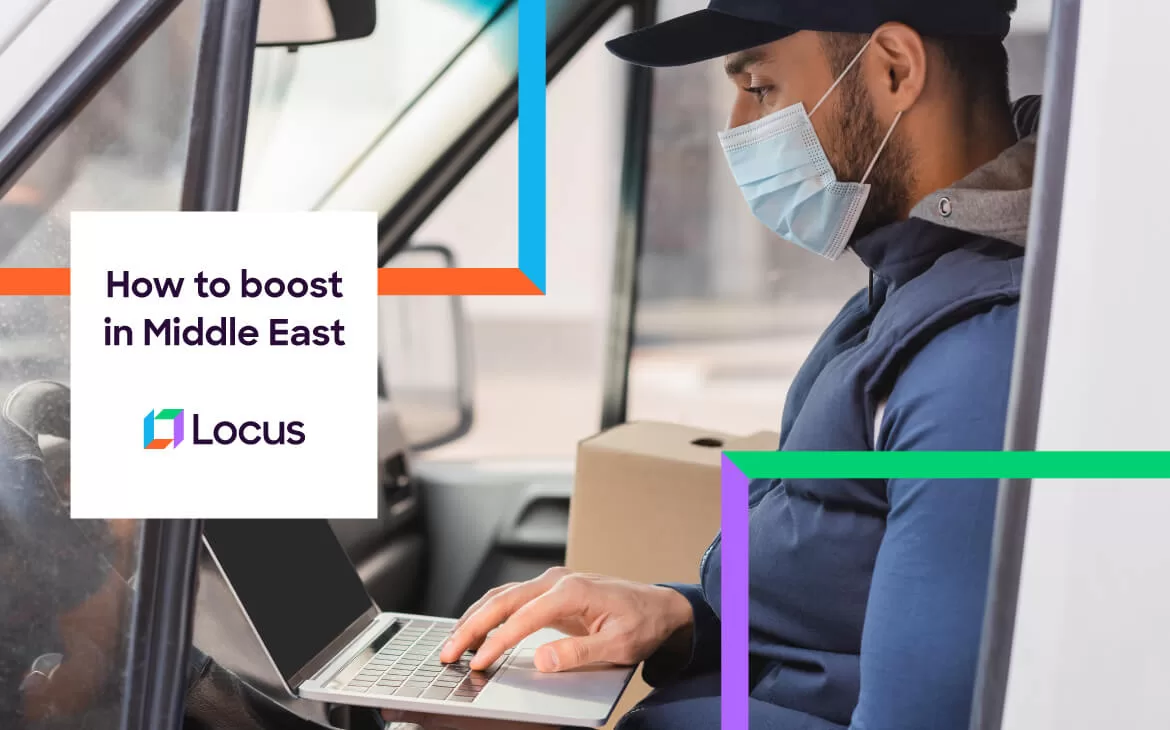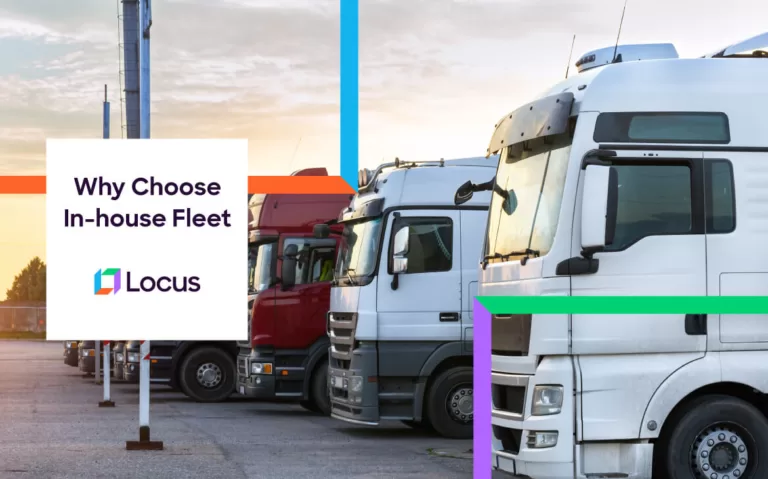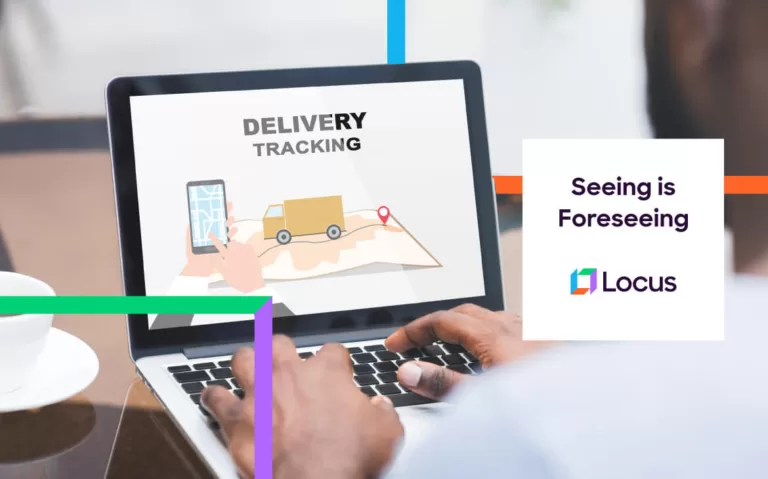Tech and Product
How AI and Logistics Tech Can Boost Van, Truck & DSD Sales in the Middle East
May 4, 2022
6 mins read

Since the end of the 20th century, Middle Eastern countries have been working towards diversifying their largely oil-based economies. Tourism and consumption have been two of the many pillars of diversification, and have been the catalysts for the emergence of a large and mature retail sector in these countries.
In our previous article, we have written about the immense opportunities of the Middle East’s multi-billion dollar retail sector, the shifts in consumer spending modes and habits, the subsequent digitalization and adoption of omnichannel strategies to (re)connect with consumers, and the necessity for logistics technologies, particularly in the last-mile.
In short: As more and more consumers begin to discover the convenience that comes with shopping online, the competition has intensified as switching brands for consumers has become easier. Timely deliveries provide an excellent customer experience and differentiate a business from its competition. And embracing logistics technologies are key to making those deliveries happen.
Despite all these strong digitalization trends, there is one intense, on-ground task that we have not covered: delivering consumer packaged goods (CPG) from manufacturing plants to the hundreds, if not thousands of retail stores and outlets. This is a function that is largely carried out by distributors.
Running a distribution business in Middle East retail?
As a retail distributor, you are an essential player in the Middle Eastern supply chain. You have strong ties between the manufacturers of fast-moving consumer goods (FMCG) or CPG, and the medium and large-sized retail outlets that sell them. Often, you have an extensive network of distribution centers and a large fleet of trucks. The objective: To ensure that FMCG products from manufacturing units are consistently sold and delivered to popular retailers with large footfalls.
There are two ways in which you go about this. The first is when a retail outlet places an order through their enterprise resource planning (ERP) software, which you then slot in your upcoming routes: The pre-sales approach. The other is when you load your trucks with the products of manufacturers and try to sell these products to various retail outlets: The van or truck spot sales approach, also called direct store delivery (DSD).
For this monumental task, you often receive sizable commissions on the sale of these goods from CPG manufacturers. This is why it is also in your best interests to maximize sales. To that end, you often end up using one or more of a combination of these approaches.
How distributors can embrace new efficiencies with logistics tech
As seen in the case of retailers in the Middle East, the competition you face as distributors is also equally fierce. You need to justify your commissions to manufacturers through consistently strong sales or risk losing your business to competitors. It goes without saying that speed and accuracy is key to improving sales across both these approaches. And logistics technology has the potential to accelerate these processes in a repeatable way.
Take Locus’ Dispatch Management Platform (DMP) for example. Its various modules are powered by mature, home-grown artificial intelligence (AI) that can bring new kinds of efficiencies to your fleets, which can translate into greater sales.
Looking at how the pre-sales route works, it is essential that every truck must carry out the maximum number of deliveries in the shortest possible time. DMP’s dispatch planning module can group and schedule thousands of orders every day with little to no manual intervention. Its allocation function ensures that each truck can carry optimal loads for the day’s deliveries. These are complex operations that took precious hours of a day, but can now be completed in a matter of minutes. It can also be programmed to slot in missed deliveries according to customizable conditions.
To ensure optimal efficiency for your fleet means that every vehicle makes the highest possible deliveries in the shortest possible time. This is in essence a vehicle routing problem. DMP’s Vehicle Routing & Scheduling Engine solves for the same by calculating the most effective route after taking 180+ real-life variables into account.
The spot sales approach is only viable if the routes plied by trucks translate into consistent sales from retailers. How does one bring about this consistency? One way to increase your chances is to make use of past trends and habits. DMP now enables this with a “Propensity to Buy Van Sales Module”, which is exclusively offered by Locus. It analyzes the historic sales data of various retailers to create dispatch routes that have high chances of securing sales. For example: If retailers A, B and C have brought two pallets of milk on a Friday in the past eight out of 10 times, the module will create a spot sales route for the coming Friday with the quickest possible path. If a sale was not made with a particular retailer on Friday, the module can then slot them in on an appropriate day next week which has historically shown the next highest sales success rate. By analyzing the ticket sizes of past sales, the module also helps spot sales trucks to prioritize those retailers who consistently give high ticket sales.
Try a demo with Locus now!
With the help of these modules, trucks plying on pre-sales operations can deliver greater volumes of product to retailers in quicker time frames, which translates into a better experience for retailers, and improved trust from CPG manufacturers. Similarly, trucks plying on spot sales routes also need to visit the largest possible stores on any given route. A function that is effectively taken care of by the Vehicle Routing & Scheduling Engine.
Delays and mishaps are inevitable, but how you react to them is in your control. For the most effective response, you need visibility into your resources, right from fleet and driver availability, to understanding where your vehicles are when requests on existing routes come in. With Locus’ advanced control tower, you can track and maintain active control over fleets at any point in the fulfillment journey, all of which can make a significant difference in efficiency.
So as long as distributors continue to play a vital role in the ever-growing retail supply chains of the Middle East, you need to consistently prove the value of their services is increasing product sales to manufacturers, or risk losing out to the competition. Onboarding logistics technology is the quickest way to gain the efficiencies that you need to rapidly move in this direction.
Related Tags:

Blog
Why Choose In-house Fleet Over Outsourced Fleet Management for Your Delivery Business
In 2021, 44.5 percent of organizations worldwide revealed that they perceive customer experience (CX) as a primary competitive differentiator. – Organizations perceiving CX as a competitive differentiator worldwide 2021, Jan 2022. Modern customers want a delightful experience from businesses. Delivery management, from the first to the last-mile, is key towards providing a lasting customer experience. […]
Read more
Last Mile Delivery Optimization
Seeing is Foreseeing: Managing Delivery Exceptions Before They Occur
Last year, the global supply chain came to a halt when the shipment was stuck in the Suez Canal. The event may have brought supply chain logistics into international headlines for a couple weeks, but major blockages like this are not the only thing that gets in the way of on-time delivery. Delivery exceptions are […]
Read moreMOST POPULAR
EDITOR’S PICKS
SUBSCRIBE TO OUR NEWSLETTER
Stay up to date with the latest marketing, sales, and service tips and news


How AI and Logistics Tech Can Boost Van, Truck & DSD Sales in the Middle East